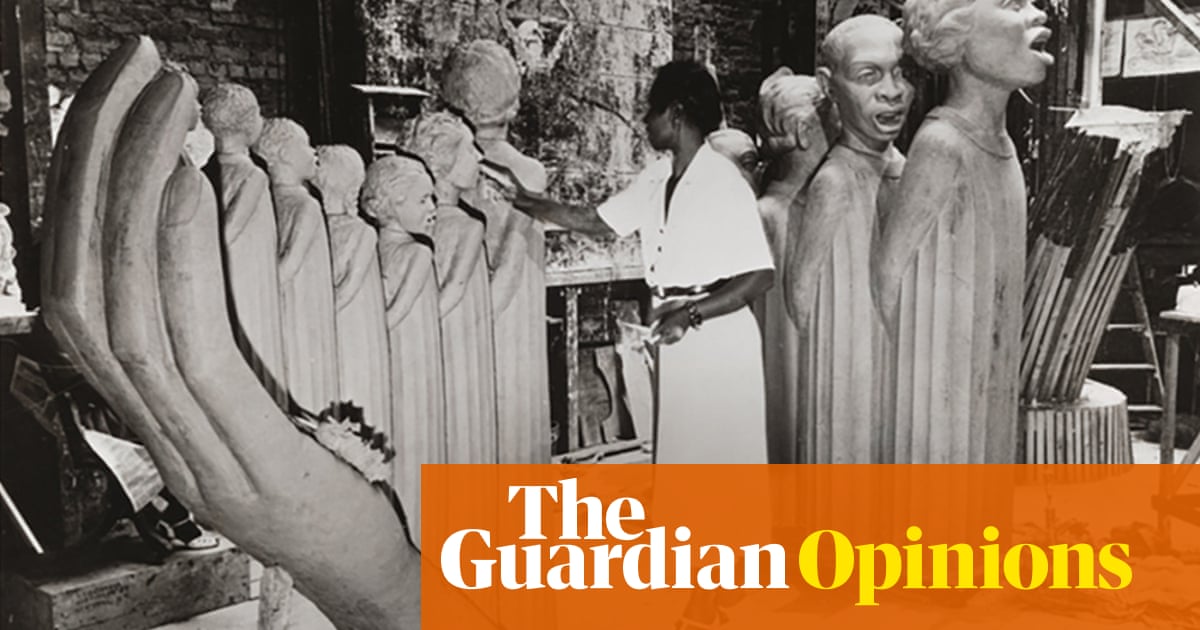
My neighbour chuckled when I told him I planned to take six months off work to help care for my newborn daughter. In the 1970s when he was a young father, he told me, men would go straight from the labour ward to the pub to wet the baby’s head and be back in the office first thing the next morning.
A great deal has changed in the past 50 years. Now fathers tend to be much more involved in looking after infants than previous generations. And yet, women still have primary responsibility for looking after infants in most heterosexual relationships. The average dad in the 70s did just 22 minutes of childcare a day. Today, the figure is up to 71 minutes, although mums are still much higher at 162. And fewer than a third of eligible fathers take the two weeks of paternity leave they are entitled to.
Underpinning these disparities is the deeply entrenched belief that it is natural for men to go out to work and women to look after the children. The latest scientific research, however, demonstrates that we must rethink this assumption.
According to a certain understanding of evolution, the most selfish, competitive and even violent males are more likely to survive long enough to pass on their genes to the next generation. Over millions of years, less belligerent, more caring males have been eliminated by natural selection. This appears to hold true in Homo sapiens’ closest relatives. For chimpanzees, childcare is exclusively a female affair. Chimp fathers, on the other hand, are more likely to cannibalise infants sired by rival males than cuddle their own.
From a biological perspective, it seems that human women are uniquely suited to looking after babies. They gestate, give birth, and breastfeed; and these processes cause hormonal changes that enhance mothers’ ability to care for their offspring. Oxytocin stimulates contractions during labour and the let-down reflex in breastfeeding, and the “love hormone” also helps mums bond with their babies. Prolactin – the “mothering hormone” – enhances empathy and nurturing instincts in addition to milk production.
All this is intellectual catnip for anyone who wants to use biology to rail against the breakdown in what they see as traditional gender roles, but it clashes with reality: research shows that men can be remarkably caring parents.
The prize for the world’s most attentive fathers goes to the Aka people, nomadic hunter-gatherers who live in the forests of central Africa. According to the US anthropologist Barry Hewlett, Aka dads spend about half their time within arm’s reach of their infants, a significant portion of which involves hugging and kissing. They even calm crying babies by letting them suckle on their nipples.
While the Aka are exceptional, they are not unique. Other anthropologists observe how men in some societies are very involved in caring for infants. Historians note that British fathers spent more time with their children before the Industrial Revolution ripped them away from family life. The rise of working from home in the past few years has gone some way to undoing man’s alienation from his children.
In the mid-20th century, Margaret Mead concluded that “motherhood is a biological necessity, but fatherhood is a social invention”. The idea that humans have the unique capacity to rise above animal instincts and create a more equitable society has been incredibly influential over the past 75 years. But it is now becoming clear that biology and culture interact in stranger, more interesting ways than Mead ever imagined.
Sarah Blaffer Hrdy, another great US anthropologist, points out in her recent book Father Time: A Natural History of Men and Babies that although there are obvious biological differences between men and women, we have almost the same genes and very similar brains. Consequently, men’s bodies retain the potential to do things typically associated with women, and vice versa.
A striking example of this is men’s hormonal response to fatherhood. When dads have prolonged periods of intimacy with babies, their bodies react in similar ways to new mums. Prolactin and oxytocin levels rapidly rise. Levels of testosterone – the male sex hormone – fall.
This is the biochemical basis of the philosopher Roman Krznaric’s observation that fatherhood increased his emotional range “from a meagre octave to a full keyboard of human feelings”. Less poetically, it is why I feel ecstatic when my toddler does a poo, and burst into tears when Clay Calloway walks on stage towards the end of Sing 2.
The maternal endocrine response – the hormone changes women experience during and after pregnancy – arises in the subcortex, the part of the brain that is common to all vertebrates and has remained largely unchanged for millions of years. Hrdy argues that the evolutionary origins of this response can in fact be traced back to male fish.
Piscine mums tend to lay their eggs and then forage for food in preparation to produce more eggs. It won’t surprise anyone who has watched Finding Nemo that fish dads often hover near nests to nurture and protect eggs they have fertilised. In nature, mothers are not always the primary carers; in many instances, it is the father’s role.
The prize for the best fish dads in the world goes to species from the Syngnathidae family. Female seahorses, pipefish and sea dragons inject their eggs into the male’s brood pouch, where they are fertilised and incubated. Not only do daddy Syngnathidae gestate and give birth, but the hormones involved are very similar to those regulating human pregnancies. Prolactin promotes the enzyme that breaks down the egg membranes, creating a nourishing fluid that the embryos feast on; and labour is stimulated by the fishy equivalent of oxytocin.
Human fatherhood is not this full-on, but when culture, choice or happenstance gives men caring responsibilities for infants, it triggers a similar endocrine response to mothers. Oxytocin and prolactin course through the brain, enhancing the father’s emotional wellbeing and social connections. For many fathers spending time with their baby, sharing the burden with their partner, or doing their bit to bring down the patriarchy is enough of a reward. But now we know there is another benefit: access to a part of the human experience that until recently was assumed to be closed to men.
For too long, simplistic interpretations of biology have been used to argue that traditional gender roles, in which women take on primary responsibility for childcare, are natural and immutable. We now know that biology can, in fact, free women and men from these binary straitjackets.
Jonathan Kennedy teaches politics and global health at Queen Mary University of London and is the author of Pathogenesis: How Germs Made History












